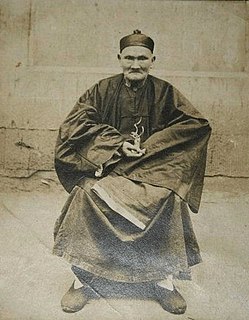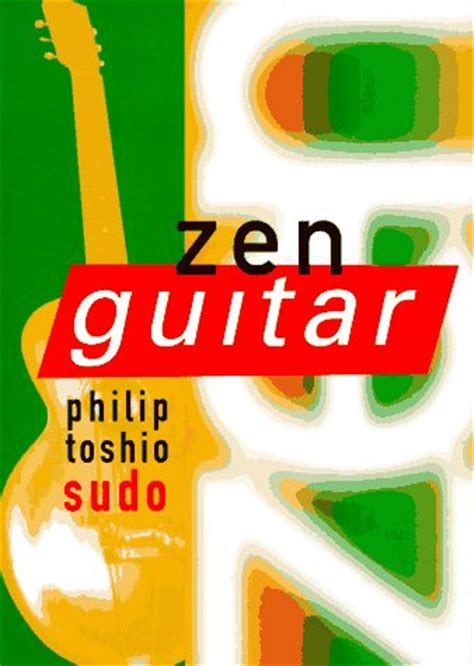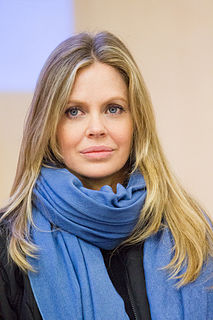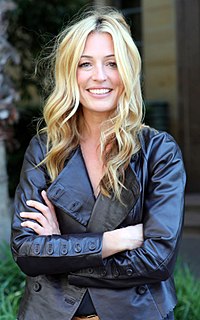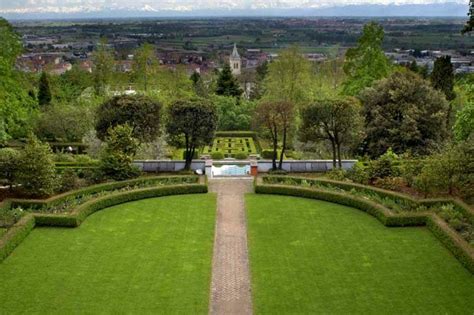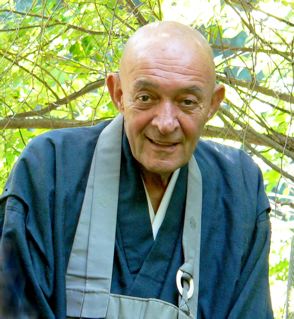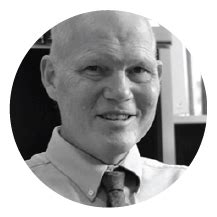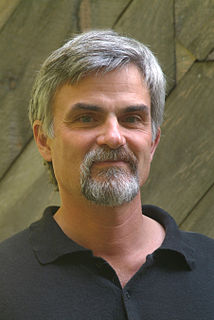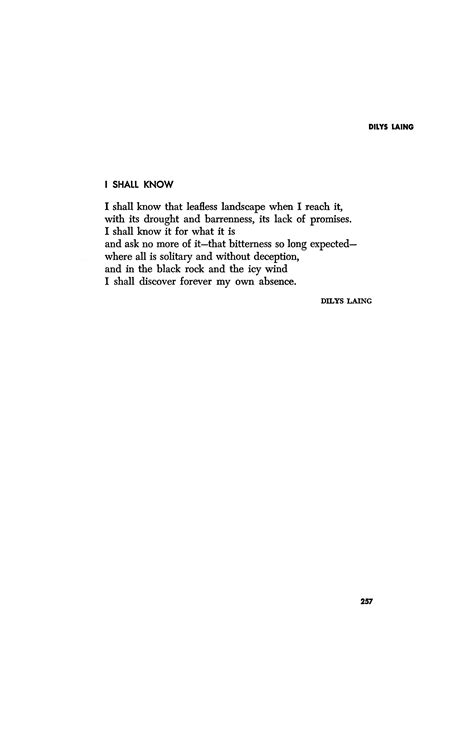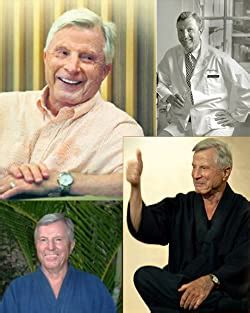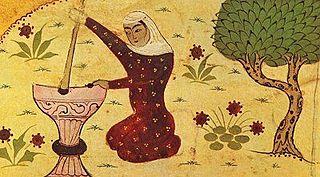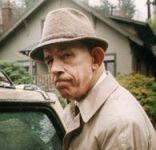Top 846 Zen Proverb Quotes & Sayings - Page 14
Explore popular Zen Proverb quotes.
Last updated on December 22, 2024.
Before I had studied Zen for thirty years,
I saw mountains as mountains,
and waters as waters.
When I arrived at a more intimate knowledge, I came to the point where I saw that mountains are not mountains,
and waters are not waters.
But now that I have got its very substance
I am at rest.
For it's just that
I see mountains once again as mountains,
and waters once again as waters.
I began researching and writing what I intended as a book-length essay entitled Fascination and Liberation, exploring the question of whether there is a conflict between creativity and the Eastern form of enlightenment. I don't know if I'll ever finish that essay, because I had an experience, after I'd written two or three chapters, in which it seemed to me that my psychic antibodies decisively rejected Buddhism. Interestingly, the rejection felt as if it happened in Zen terms.
The whole essence of Zen consists in walking along the razor's edge of Now - to be so utterly, so completely present that no problem, no suffering, nothing that is not who you are in your essence, can survive in you. In the Now, in the absence of time, all your problems dissolve. Suffering needs time; it cannot survive in the Now.
Rigging is like Zen meditation. You must bend over the boat until your back is breaking, until your brain is filled with numbers and fractions of numbers, until you can accurately measure an oarlock's pitch without bothering to use the pitch meter. Only then will you see the way of eternal rigging happiness.
I live part-time in a cabin in Colorado up in the mountains and part-time on a ranch in central Texas - but do I really know how to go brand a cow, or do I really know how to go rappelling down a cliff? No. I do the recreational, half-assed version of all these manly activities and then try to keep that kind of Zen masculinity, like, "I'm a man of nature."
Every time I try to disown that concept for myself, which is a really healthy perspective, they bring it back all the time. It's so serious and so real and so tangible that you don't want to taint it with anything other than the thing itself. I was tickled pink with my very zen self, walking around saying that I made a record because I wanted to make a record. That's so beautiful. It's like a haiku poem. That takes away all the tension and the expectation. I just want to try to do something interesting.
The saying "no self, no problem" probably comes from Zen. In their cultures, where Buddhism is kind of taken for granted, as well as karma, causality, former and future life, and the possibility for becoming enlightened, then it's safe to skirt the danger of nihilism, which would be, I don't exist because Buddha said I have no self, and therefore I have no problem because I don't exist. That would be a bad misunderstanding. But in those cultures, it would not be as easy to have that understanding as it would be here in the west, where we really are nihilistic.
Zen, like life, defies exact definition, but its essence is the experience, moment by moment, of our own existence -- a natural, spontaneous encounter, unclouded by the suppositions and expectations that come between us and reality. It is, if you like, a paring down of life until we see it as it really is, free from our illusions; it is merely a divestment of ourselves until we recognize our own true nature.
I use a Bruce Lee technique: "The way of no way". He had the idea that he would learn everything, so that whoever he had to fight, he could improvise anything. The best way of starting a gig is just to not think of anything - to clear your mind, not in an empty Zen state, but more just to go on and see where you go.
I have more things going on right now than I can actually do without the invention of a cloning device. It is great! But it does give me many opportunities to practice trying to learn the lesson of being more Zen. I tend to worry about each "emergency" or unforeseen complication on all my projects. But there are so many! All of life is unforeseen! So I am learning that is the cycle of life - everything is cyclical and temporary and to get ok with that someday could be my greatest achievement.
Zen brings creativity. And remember, if you want to be one with the creator, you will have to learn some ways of creativity. The only way to be one with the creator is to be in some moment of creativity, when you are lost. The potter is lost in making his pottery; the potter is lost while working on the wheel. The painter is lost while painting. The dancer is lost; there is no dancer, only the dance remains. Those are the peak moments, where you touch God, where God touches you.
I make sure I have the best: I figure you could spend $800 on an outfit you wear three times, but with your hair it's there all the time. I also think it is really important to look after your colour once it's been done. I try and give my hair a really nourishing mask every so often to combat against all the styling. I also love to have beauty treatments that really benefit, like massages. t's divine to get up and feel all zen and relaxed.
In the assemblies of the enlightened ones there have been many cases of mastering the Way bringing forth the heart of plants and trees; this is what awakening the mind for enlightenment is like. The fifth patriarch of Zen was once a pine-planting wayfarer; Rinzai worked on planting cedars and pines on Mount Obaku. . . . Working with plants, trees, fences and walls, if they practice sincerely they will attain enlightenment.
I have sort of a Zen body philosophy, I'm sort of like: we're one weight one day, we're one weight another day, and some day our body just doesn't even exist at all! It's just a vessel I've been given to move through this life. I think about my body as a tool to do the stuff I need to do, but not the be all and end all of my existence. Which sounds like I spent a week at a meditation retreat, but it's genuinely how I feel.
If we had the consciousness of a cat or a dog, we would have it in us to become perfect Zen masters. We could gnaw on a bone, take a nap, play with a spider until we killed it, get our litter just right, and be innocently and serenely present. Meaning would mean nothing to us, nor would we need it to mean anything. We would be free, and we would be spared. But, we are human beings, and we posses that odd duck – human consciousness.
There is no one way to salvation, whatever the manner in which a man may proceed. All forms and variations are governed by the eternal intelligence of the Universe that enables a man to approach perfection. It may be in the arts of music and painting or it may be in commerce, law, or medicine. It may be in the study of war or the study of peace. Each is as important as any other. Spiritual enlightenment through religious meditation such as Zen or in any other way is as viable and functional as any "Way."... A person should study as they see fit.
With the near-death or clinical near-death phenomenon some people who are brought back from 'death' have reported being alive the entire time they were 'dead.' This phenomenon occurs among people with a wide diversity of religious belief and no religious belief at all - from atheists to Zen Buddhists.
The story of the Zen Master whose only response was always "Is that so?" shows the good that comes through inner nonresistance to events, that is to say, being at one with what happens. The story of the man whose comment was invariably a laconic "Maybe" illustrates the wisdom of nonjudgment, and the story of the ring points to the fact of impermanence which, when recognized, leads to nonattachment. Nonresistance, nonjudgement, and nonattachment are the three aspects of true freedom and enlightened living.
I thought, man, if you could run 100 miles, you'd be in this Zen state. You'd be the f**king Buddha. Bringing peace and a smile to the world. In my case, it didn't work. I'm the same old punk ass as ever. But there's always this hope that it'll turn you into the person you want to be. You know, like a better, more peaceful person. And when I'm out on a long run, the only thing in life that matters is finishing the run. For once, my brain isn't going 'bleh bleh bleh bleh.' Everything just quiets down, and the only thing going on is pure flow
I use a Bruce Lee technique: 'The way of no way.' He had the idea that he would learn everything, so that whoever he had to fight, he could improvise anything. The best way of starting a gig is just to not think of anything - to clear your mind, not in an empty Zen state, but more just to go on and see where you go.
The Zen way of calligraphy is to write in the most straightforward, simple way as if you were a beginner, not trying to make something skillful or beautiful, but simply writing with full attention as if you were discovering what you were writing for the first time; then your full nature will be in your writing.
But the transformation of consciousness undertaken in Taoism and Zen is more like the correction of faulty perception or the curing of a disease. It is not an acquisitive process of learning more and more facts or greater and greater skills, but rather an unlearning of wrong habits and opinions. As Lao-tzu said, "The scholar gains every day, but the Taoist loses every day.
I heard Zen teacher one time talking about abortion, and he was saying the way that abortion makes bad karma is any time the person involved pretends that there's not a cost to the choice, one way or the other; whether you get it or don't get it, there's a cost. That's just basic responsibility, to admit that there's a cost. And the bad karma is when you pretend that the thing is free.
A handful of men working within the Zen sect of Buddhism created gardens in fifteenth-century Japan which were, and still are, far more than merely an aesthetic expression. And what is left of the earlier Mogul gardens in India suggests that their makers were acquainted with what lay behind the flowering of the Sufi movement in High Asia and so sought to add further dimensions to their garden scenes.
If I was asked to get rid of the Zen aesthetic and just keep one quality necessary to create art, I would say it's trust. When you learn to trust yourself implicitly, you no longer need to prove something through your art. You simply allow it to come out, to be as it is. This is when creating art becomes effortless. It happens just as you grow your hair. It grows.
I work in several different groups of pictures which act on and with each other - ranging from several abstracted manners to a form for the surreal. I have been called a preacher - but, in reality, I'm more generally philosophical. I have never made an abstracted photograph without content. An educated background in Zen influences all of my photographs. It has been said that my work resembles, more closely than any photographer, Le Douanier Rousseau - working in a fairly isolated area and feeding mostly on myself - I feel that I am a primitive photographer.
Buddha is said to have given a "silent sermon" once during which he held up a flower and gazed at it. After a while, one of those present, a monk called Mahakasyapa, began to smile. He is said to have been the only one who had understood the sermon. According to legend, that smile (that is to say, realization) was handed down by twenty-eight successive masters and much later became the origin of Zen.
I didn't mean for you to take that the wrong way," He said abruptly. Mae stared at him in amazement. So, for that matter, did Jamie. "What?" "Demons don't touch anyone without a reason," Nick went on, his eyes shut again. "You can imagine what kind of reasons we usually have. I don't like--not anyone--I didn't mean anything by it." "Oh," said Jamie. "Oh, that's okay! That's fine. I understand. I am filled to the brim with understanding and, and acceptance! I'm very Zen like that.
If you exchanged wedding vows, tape them to your bathroom mirror and read them aloud to yourself every morning along with the ritual brushing of teeth. It's not realistic to believe that you will live your promises as a daily practice -- unless you're a saint or a highly evolved Zen Buddhist. Not where marriage is concerned. But you can make a practice of returning to your vows when the going gets rough.
I think real enlightenment is total sanity, a kind of acceptance of what actually is. It does involve a kind of different way of looking at things. As I've done this Zen practice for years and years, I've acquired what I realize is an almost upside down view of life compared to what most people think, which is just what I used to think it was too. It's not really an insane view, at least I hope it's not.
We live in a supermarket of ideas, faiths, practices, theories, ideologies, and much else besides. Never in human history have there been so many movements and ideas struggling to attract our attention. Added to this, the Western world is swamped by material goods and the Western mind is dominated by the goal of material success. In all this confusion, Zen stands out as a voice of sanity. It represents a different way of seeing the world, one based upon the rediscovery of who we really are and have always been, through revealing to us our true nature.
But when you're in front of an audience and you make them laugh at a new idea, you're guiding the whole being for the moment. No one is ever more him/herself than when they really laugh. Their defenses are down. It's very Zen-like, that moment. They are completely open, completely themselves when that message hits the brain and the laugh begins. That's when new ideas can be implanted. If a new idea slips in at that moment, it has a chance to grow.
I nudged myself closer to the ledge and closed my eyes and thought 'Oh what a life this is, why do we have to be born in the first place, and only so we can have our poor gentle flesh laid out to such impossible horrors as huge mountains and rock and empty space,' and with horror I remembered the famous Zen saying, 'When you get to the top of a mountain, keep climbing.' The saying made my hair stand on end; it had been such cute poetry sitting on Alvah's straw mats.
Everyone needs a spiritual guide: a minister, rabbi, counselor, wise friend, or therapist. My own wise friend is my dog. He has deep knowledge to impart. He makes friends easily and doesn't hold a grudge. He enjoys simple pleasures and takes each day as it comes. Like a true Zen master he eats when he is hungry and sleeps when he is tired. He's not hung up about sex. Best of all, he befriends me with an unconditional love that human beings would do well to imitate.
I see a vision of a great rucksack revolution thousands or even millions of young Americans wandering around with rucksacks, going up to mountains to pray, making children laugh and old men glad, making young girls happy and old girls happier, all of 'em Zen Lunatics who go about writing poems that happen to appear in their heads for no reason and also by being kind and also by strange unexpected acts keep giving visions of eternal freedom to everybody and to all living creatures.
Hidden in all good fortune is misfortune. And in all misfortune is good fortune. It's never going to stay the same as long you are in the world or unless you die while you are alive and become an enlightened Zen Master. But those people don't exist. When you study their lives, you find that they had the same struggles as the rest of us. It's not so much about being able to always have calm. Calmness isn't just the absence of noise or troubles. It's being able to find calm within yourself when other stuff is going on.
I felt I was drawing close to that age, that place in life, where you realize one day what you'd told yourself was a Zen detachment turns out to be naked fear. You'd had one serious love relationship in your life and it had ended in tragedy, and the tragedy had broken something inside you. But instead of trying to repair the broken place, or at least really stop and look at it, you skated and joked. You had friends, you were a decent citizen. You hurt no one. And your life was somehow just about half of what it could be.
I put down my book, The Meaning of Zen, and see the cat smiling into her fur as she delicately combs it with her rough pink tongue. 'Cat, I would lend you this book to study but it appears you have already read it.' She looks up and gives me her full gaze. 'Don't be ridiculous,' she purrs, 'I wrote it.'
Korea's first Zen Master-poet wrote simple yet elegant poetry of the world he inhabited, both physically and spiritually, and of daily insights-a pause along the way for a deep clear breath, a moon-viewing moment, a seasonal note or a farewell poem to a departing monk. His poems speak softly and clearly, like hearing a temple bell that was struck a thousand years ago.
When we are generous in welcoming people and sharing something with them-some food, a place in our homes, our time-not only do we no longer remain poor: we are enriched. I am well aware that when someone needing food knocks at your door, you always find a way of sharing food; as the proverb says, one can always 'add more water to the beans'! Is it possible to add more water to the beans?...Always?...And you do so with love, demonstrating that true riches consist not in materials things, but in the heart!
What interests me is to paint the kind of antisensitivity that impregnates modern civilization. I think art since Cezanne has become extremely romantic and unrealistic, feeding on art. It is Utopian. It has less and less to do with the world. It looks inward - neo-Zen and all that. Pop Art looks out into the world. It doesn't look like a painting of something, it looks like the thing itself.
The Zen meditative approach has a simple, unstated premise: moods and attitudes shape—determine—what we think and perceive. If we feel happy, we tend to develop certain trains of thought. If we feel sad or angry, still others. But suppose, with training, we become nonattached to distractions and learn to dampen these wild, emotional swings on either side of equanimity. Then we can enter that serene awareness which is the natural soil for positive, spontaneous personal growth, often called spiritual growth.
You're always striving for a place of Zen. Or a flow state, where you kind of transcend reality and you go to the other place. It's when everything is in sync, and everyone is connecting with one another. Everything is going perfectly. You lose yourself. It's the ultimate form of meditation where it's an out - of - body experience. Afterward you come back to Earth and you're like, 'What just happened? We just did something awesome!' It's this energy in the room when you know you're nailing it and you know everyone else is feeling it too. That's why theater is so awesome.
A leading scholar of Basra visited Rabi'a al-Adawiyya while she was ill.
ting beside her pillow, the scholar spoke about how terrible the world was. In reply, Rabi`a told him:
"You love the world very dearly. If you did not love the world, you would not mention it so much. It is always the purchaser who first disparages what he wants to buy. If you were done with the world, you would not mention it either for good or evil. As it is, you keep mentioning it because, as the proverb says, whoever loves a thing mentions it frequently."
Not Christian or Jew or Muslim, not Hindu, Buddhist, sufi, or zen. Not any religion or cultural system. I am not from the East or the West, not out of the ocean or up from the ground, not natural or ethereal, not composed of elements at all. I do not exist, am not an entity in this world or the next, did not descend from Adam or Eve or any origin story. My place is placeless, a trace of the traceless. Neither body or soul. I belong to the beloved, have seen the two worlds as one and that one call to and know, first, last, outer, inner, only that breath breathing human being.
Does the unmistakeable intent of Versailles to proclaim dominion over nature destroy its aesthetic appeal, as Schopenhauer thought? Does the greenness of the lawn lose its allure when we learn how much water, sorely needed elsewhere, it uses? And historical shifts in garden taste - from formal, 'French' gardens to 'Capability' Brown's landscapes, for instance, or from the elaborate gardens of imperial Kyoto to Zen 'dry' gardens - register important changes in philosophical or religious attitudes.
This building we're in has doors and windows. If we close the doors and windows, we can't get out. People lock themselves inside a house of delusions. But they're only delusions. They can leave anytime. Actually there is no house to leave. There's not even any leaving. What we see are flowers in the sky, the moon in the water. As for the meditative powers of Zen masters like Hsu-yun, sometimes it's useful to meditate and sometimes it isn't.
The famous Zen parable about the master for whom, before his studies, mountains were only mountains, but during his studies mountains were no longer mountains, and afterward mountains were again mountains could be interpreted as an alleory about [the perpetual paradox that when one is closest to a destination one is also the farthest).
But the solution to the riddle of life and space and time lies outside space and time. For, as it should be abundantly clear by now, nothing inside a frame can state, or even ask, anything about that frame. The solution, then, is not the finding of an answer to the riddle of existence, but the realization that there is no riddle. This is the essence of the beautiful, almost Zen Buddhist closing sentences of the Tracticus: "For an answer which cannot be expressed the question too cannot be expressed. The riddle does not exist."
If your creativity comes out of your silence, out of your Zen, out of your meditations, then it is authentic, original. If it comes only as an occupation because you are feeling lost and there is nothing to do - a long holiday, so you start doing something... That is not coming out of your silences, it is coming out of your crazy mind.
Zen says that if you drop knowledge - and within knowledge everything is included; your name, your identity, everything, because this has been given to you by others - if you drop all that has been given by others, you will have a totally different quality to your being: innocence. This will be a crucifixion of the persona, the personality, and there will be a resurrection of your innocence. You will become a child again, reborn.
Sanity and enlightenment...I've been reading a new book Dogen's Genjo Koan: Three Commentaries, and it contains a commentary on Genjo Koan by Shunryu Suzuki, the author who wrote Zen Mind, Beginners Mind. He doesn't mention sanity at all but I think that one possible definition of enlightenment would be a kind of profound sanity, where being insane is no longer an option.
There is a story in Zen circles about a man and a horse. The horse is galloping quickly, and it appears that the man on the horse is going somewhere important. Another man standing alongside the road, shouts, «Where are you going?» and the first man replies, «I don't know! Ask the horse!» This is also our story. We are riding a horse, and we don't know where we are going and we can't stop. The horse is our habit energy pulling us along, and we are powerless.
